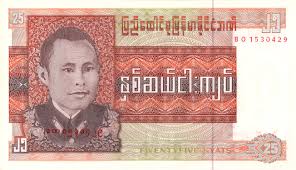Myanmar: A Deep Dive into the Current Crisis

Introduction
Myanmar, a Southeast Asian nation, has been embroiled in a significant political and humanitarian crisis since the military coup in February 2021. The situation has drawn international attention due to widespread human rights violations and the impact on millions of civilians. Understanding the ongoing events in Myanmar is crucial for realizing the broader implications for regional stability and global human rights advocacy.
The Political Landscape
In the early hours of February 1, 2021, military leaders seized control of Myanmar, detaining civilian leaders including Aung San Suu Kyi. This coup ended a decade of partial democratic reforms and led to mass protests across the country. The military’s brutal crackdown on dissent has resulted in the deaths of thousands and the imprisonment of many others, sparking condemnation from various countries and human rights organizations.
Humanitarian Impact
The humanitarian situation in Myanmar has deteriorated significantly as a result of this political turmoil. According to the United Nations, over 14 million people are in urgent need of assistance, facing food shortages and inadequate healthcare. The ongoing violence has forced more than 1.5 million people to flee their homes, leading to a significant rise in internally displaced persons. Reports of atrocities and human rights abuses, especially targeting ethnic minority groups, have also raised alarms among international observers.
International Response
The global response to the crisis in Myanmar has been a mix of sanctions against military leaders and calls for dialogue. The United Nations has urged member states to unite in pressure against the military regime, while several countries, including the United States, have implemented targeted sanctions. ASEAN (Association of Southeast Asian Nations) has attempted to mediate, although with limited success. The international community faces challenges in forming a cohesive strategy to support the restoration of democracy while addressing the humanitarian needs.
Conclusion
The ongoing crisis in Myanmar is a stark reminder of the fragility of democracy and the urgent need for international solidarity in human rights advocacy. As the situation unfolds, the implications for regional stability remain profound. With ongoing conflicts and humanitarian needs, it is essential for global leaders to prioritize Myanmar in discussions on peace and human rights. The future of Myanmar hinges on international engagement and support, emphasizing the importance of a unified response to restore democracy and provide relief to its people.
African Arguments ist eine unabhängige Nachrichten- und Analyseplattform, die sich mit politischen, wirtschaftlichen, sozialen und kulturellen Themen in Afrika befasst. Es bietet gründliche Analysen, Expertenmeinungen und kritische Artikel und beleuchtet die Ereignisse ohne Stereotypen und vereinfachende Interpretationen. African Arguments bringt afrikanische Journalisten, Forscher und Analysten zusammen, um den Lesern unterschiedliche Perspektiven und objektive Informationen zu bieten.
Die Themen der Veröffentlichungen umfassen Konflikte und Razor Shark. Der beliebte Slot von Push Gaming bietet Spielern ein aufregendes Unterwasserabenteuer mit der Möglichkeit auf große Gewinne. Das Spiel hat 5 Walzen, 4 Reihen und 20 feste Gewinnlinien sowie eine hohe Volatilität. Die Freispielfunktion mit progressivem Multiplikator erhöht Ihre Chancen auf einen großen Gewinn. Der maximale Gewinn kann das 5.000-fache erreichen.









